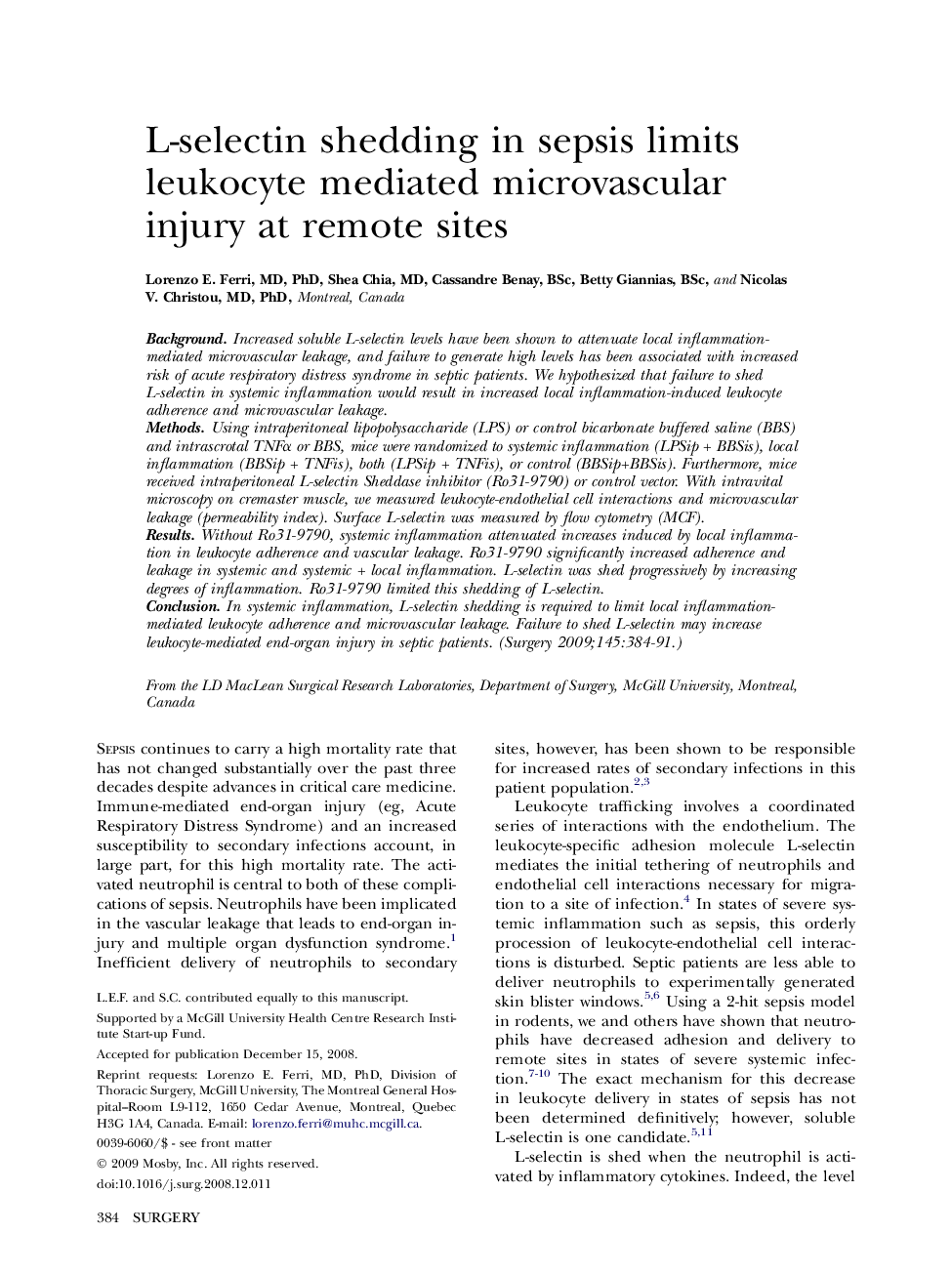| Article ID | Journal | Published Year | Pages | File Type |
|---|---|---|---|---|
| 4308143 | Surgery | 2009 | 8 Pages |
BackgroundIncreased soluble L-selectin levels have been shown to attenuate local inflammation-mediated microvascular leakage, and failure to generate high levels has been associated with increased risk of acute respiratory distress syndrome in septic patients. We hypothesized that failure to shed L-selectin in systemic inflammation would result in increased local inflammation-induced leukocyte adherence and microvascular leakage.MethodsUsing intraperitoneal lipopolysaccharide (LPS) or control bicarbonate buffered saline (BBS) and intrascrotal TNFα or BBS, mice were randomized to systemic inflammation (LPSip + BBSis), local inflammation (BBSip + TNFis), both (LPSip + TNFis), or control (BBSip+BBSis). Furthermore, mice received intraperitoneal L-selectin Sheddase inhibitor (Ro31-9790) or control vector. With intravital microscopy on cremaster muscle, we measured leukocyte-endothelial cell interactions and microvascular leakage (permeability index). Surface L-selectin was measured by flow cytometry (MCF).ResultsWithout Ro31-9790, systemic inflammation attenuated increases induced by local inflammation in leukocyte adherence and vascular leakage. Ro31-9790 significantly increased adherence and leakage in systemic and systemic + local inflammation. L-selectin was shed progressively by increasing degrees of inflammation. Ro31-9790 limited this shedding of L-selectin.ConclusionIn systemic inflammation, L-selectin shedding is required to limit local inflammation-mediated leukocyte adherence and microvascular leakage. Failure to shed L-selectin may increase leukocyte-mediated end-organ injury in septic patients.
